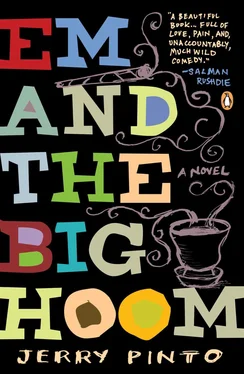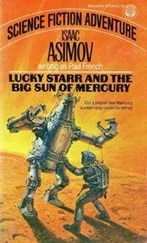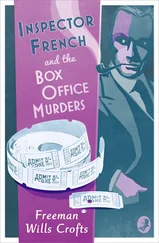Jerry Pinto - Em and the Big Hoom
Здесь есть возможность читать онлайн «Jerry Pinto - Em and the Big Hoom» весь текст электронной книги совершенно бесплатно (целиком полную версию без сокращений). В некоторых случаях можно слушать аудио, скачать через торрент в формате fb2 и присутствует краткое содержание. Год выпуска: 2014, Издательство: Penguin Books, Жанр: Современная проза, на английском языке. Описание произведения, (предисловие) а так же отзывы посетителей доступны на портале библиотеки ЛибКат.
- Название:Em and the Big Hoom
- Автор:
- Издательство:Penguin Books
- Жанр:
- Год:2014
- ISBN:нет данных
- Рейтинг книги:3 / 5. Голосов: 1
-
Избранное:Добавить в избранное
- Отзывы:
-
Ваша оценка:
- 60
- 1
- 2
- 3
- 4
- 5
Em and the Big Hoom: краткое содержание, описание и аннотация
Предлагаем к чтению аннотацию, описание, краткое содержание или предисловие (зависит от того, что написал сам автор книги «Em and the Big Hoom»). Если вы не нашли необходимую информацию о книге — напишите в комментариях, мы постараемся отыскать её.
Em and the Big Hoom — читать онлайн бесплатно полную книгу (весь текст) целиком
Ниже представлен текст книги, разбитый по страницам. Система сохранения места последней прочитанной страницы, позволяет с удобством читать онлайн бесплатно книгу «Em and the Big Hoom», без необходимости каждый раз заново искать на чём Вы остановились. Поставьте закладку, и сможете в любой момент перейти на страницу, на которой закончили чтение.
Интервал:
Закладка:
‘Oh, was that it? I thought it was just Mae’s way.’
‘Maybe it was. After all, other women earn but they also do the housework.’
‘I think there was a time when she tried to teach me to cook. We were in Goa then. Some small fish had been brought from the river and there were still a few that were hopping about a bit. I couldn’t bear it so I thought I’d drown them and put them out of their misery.’
‘That sounds like an apocryphal family story.’
‘It does? I thought it sounded like a really silly one. But if you know a word like apocryphal you should of course find a reason to trot it out. And there’s a sequel. When Mae came in, she was horrified to find a couple of fish now swimming about so she took them down to the river and let them go again. So there.’
The wage earner was spared the housework. But this was how the money was apportioned: Imelda earned it and Mae doled out a weekly allowance.
‘Sometimes I’d save my tram fare home. It was about an hour from Fort to Byculla if I walked, so I walked and saved my pence…’
‘To eat dates,’ I said.
‘Yes. Dates. Clever of you to remember. Is there a fruit anywhere in the world like the date? I mean, have you ever met a disappointing date? I’ve met apples that do not crunch and I’ve met pears that are too hard. I’ve met grapes that are sour…’
‘Okay, but a date is always sweet. I got that.’
‘What would I do without you to keep me on the conversational straight and narrow?’ Em waved her beedi in the air with a rhetorical flourish. ‘I bought dates and I ate them as I walked.’
‘It must have helped you stay slim.’
‘You know, perhaps it was because there was so little money in the house, but I don’t remember ever being worried about my figure. I knew it was okay and my face was okay and that was it. So I didn’t think… no… I never thought: is this good for my figure? I never thought about that. And if someone had come up to me and offered me a lift home in his car, I would have hopped in. But only with someone respectable. We were always being told about horrible things happening to young women who got into cars with the wrong people. But no wrong people were to hand, thankfully, so there I was walking down the road from Fort to Bicks, eating a handful of dates, very slowly and very slyly, because I think it was generally felt that a woman should not eat in public.’
And one day, a car did pull up next to her.
3. ‘If he should try and rape you’
‘It was your Big Hoom, our very own LOS. He opened the door for me, but before I could get in, three young ladies from the bus stop rushed past me and got in. So he did the only thing a fellow could do.’
She stopped and looked at me expectantly.
‘Which was?’
‘He got out.’
‘That must have pleased the taxi driver.’
‘He was squawking but your Big Hoom didn’t care much. He said, “Are you walking home?” “Yes,” I said. “Well, I’ll walk with you then.” And we began to walk.’
‘What happened to the taxi?’
‘You’re getting obsessed with that taxi. But it was strange. We went into a bookshop because he wanted to check if a book he had ordered had come. When we came out, it was waiting for us.’
‘The same taxi?!’
‘LOS had an arrangement with a driver. Something that he’d worked out so it benefited both of them. I never did figure it out but there was always a taxi and it was always the same driver.’
‘And what happened to the women who got into the taxi? The ones from the bus stop?’
‘Your father sold them into the flesh trade. I have no idea. I suppose they got out when they figured there was going to be no free ride. Why do you want to know?’
I had no idea why. I still don’t. I like details — no, it’s more than that; I delight in details. I’m never sure where I am with people who may give me the large truths about themselves but not the everyday, even trivial details — the book a friend was reading in the airplane on the way to Chicago, the number of times someone sat for his degree examination, the names of the dogs a friend had when he lived with his grandfather. I’ve been told that I exhaust people with my curiosity. Once I was told that living with me would mean being trapped and slowly asphyxiated. Should I blame Em for this? Or would I have turned out just the way I am even if she had been whole and it had been possible to reach her?
There’s that bookshop, for instance. Em never told me the name, she couldn’t remember, and I’m still trying to find out.
Because that was also part of the family legend. That Augustine and Imelda spent their courtship in a variety of bookshops, that they would still have been doing that if they’d had their own way. I told The Big Hoom about this view of the two of them and he looked amused for a moment and then annoyed for a moment.
‘It wasn’t like that,’ he said and there was something in his voice that suggested it could never be like that. But he didn’t tell me how it was exactly. He never said anything to contradict the view that neither of them seemed to want to get married; that they were content merely courting, like romantic adolescents unwilling to risk consummation.
He did tell me, though, about the time he first saw Em.
‘I saw her at the office. She was very frightened. I don’t think she was very much more than eighteen years old when she came to work at ASL. And then she had to deal with Brigitte.’
I’d wondered about Brigitte ever since Em told me of her interview at ASL.
‘We knew there was something wrong,’ The Big Hoom told me. ‘But no one could say what it was. We found out only later when the police came to take her. I don’t remember exactly how the racket worked, but those were days of terrible unemployment. Young women, quite respectable, would come to the office asking for jobs. Brigitte would send them off to a brothel somewhere.’
So that was why Em was being sent to the dressmaker. And why Brigitte was so reluctant to give her the address later. I made a mental note to tell Em about it some time. I knew it would make her happy, to find out why. Perhaps because I always thought of her as a writer who would like her stories shaped well.
There were notebooks all over the house, stacks of them. There was writing in odd places. And books were often annotated. Our clothbound copy of The Collected Works of Lewis Carroll , with illustrations by John Tenniel, was filled with scribbles. I still have that book. Chapter Three of Through the Looking Glass — ‘Looking-Glass Insects’ — has this scrawled over the title: ‘To be or not to be, that is the question. Ha ha. I’m a humorist’. On the page where the guard is peering in at Alice and the goat through a pair of binoculars, is an inscription: ‘Horrible illustrations! I’m frightened. Help me God!’ The rather cheerful poem — cheerful for Carroll, at least — ‘The Walrus and The Carpenter’ has ‘Ave Maria’ written after every third verse.
This we knew about her even when everything else was a mystery: Em wrote. She wrote when she was with us. She wrote when no one was around. She wrote postcards, she wrote letters in books, she wrote in other people’s diaries, in telephone diaries, on the menus of takeaway places. Did she really want to be a teacher? I ask myself now. Or did she want to be a writer? In some of the letters she wrote Augustine, she was obviously flaunting her ability to write. She was demonstrating her charm, her effortlessness, her skill. She was suggesting to the world that she be taken seriously as a writer. No one did. I didn’t. I didn’t even see it. I thought she wrote as she broadcast, without much effort, without much thought. I have discovered since that such effortlessness is not easy to achieve and its weightlessness is in direct proportion to the effort put in. But unless she wrote drafts in secret and destroyed them, she seems to have achieved lift-off without effort. And then there was no reason for her to work at it, really. She had no audience other than us.
Читать дальшеИнтервал:
Закладка:
Похожие книги на «Em and the Big Hoom»
Представляем Вашему вниманию похожие книги на «Em and the Big Hoom» списком для выбора. Мы отобрали схожую по названию и смыслу литературу в надежде предоставить читателям больше вариантов отыскать новые, интересные, ещё непрочитанные произведения.
Обсуждение, отзывы о книге «Em and the Big Hoom» и просто собственные мнения читателей. Оставьте ваши комментарии, напишите, что Вы думаете о произведении, его смысле или главных героях. Укажите что конкретно понравилось, а что нет, и почему Вы так считаете.











